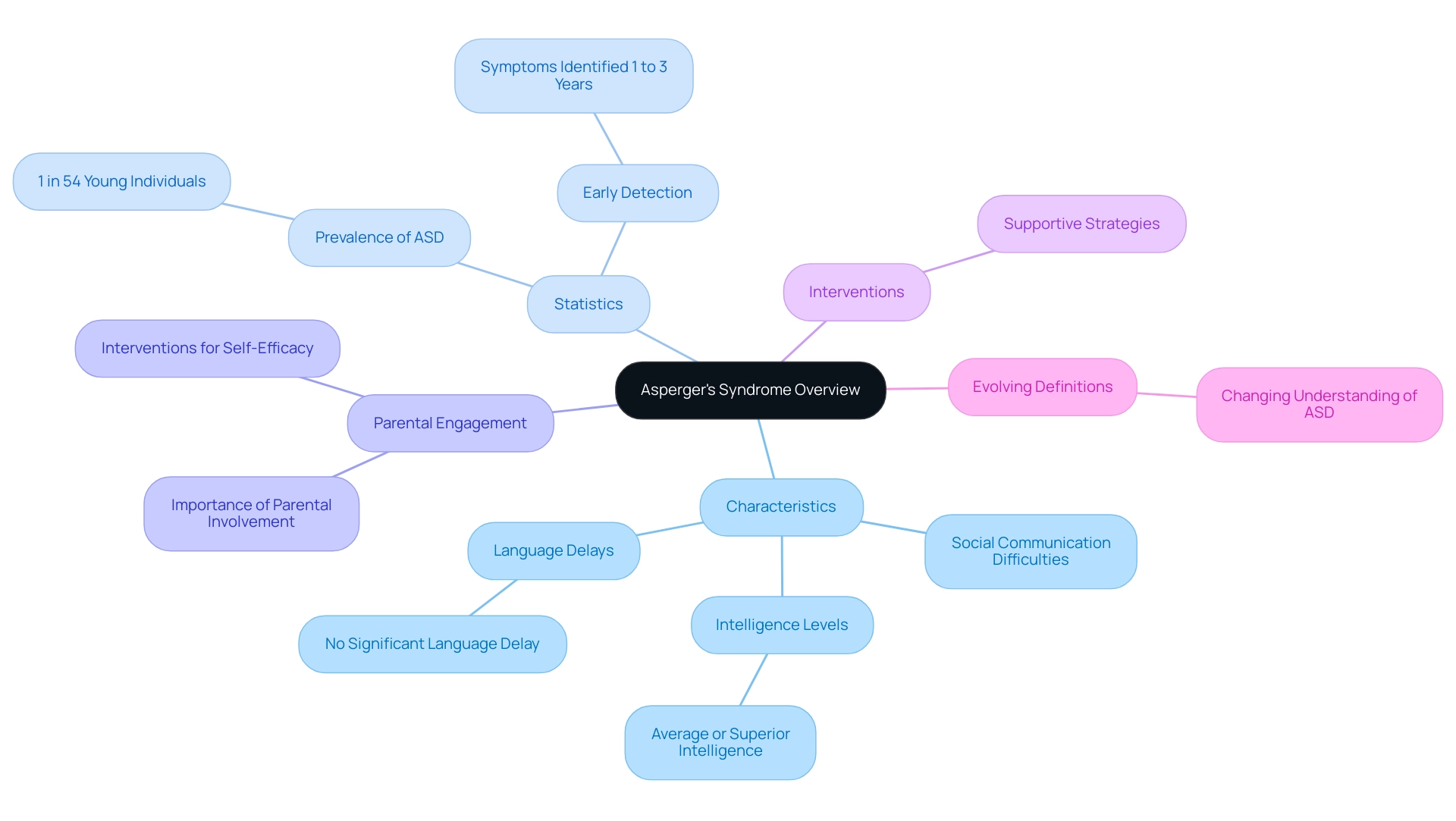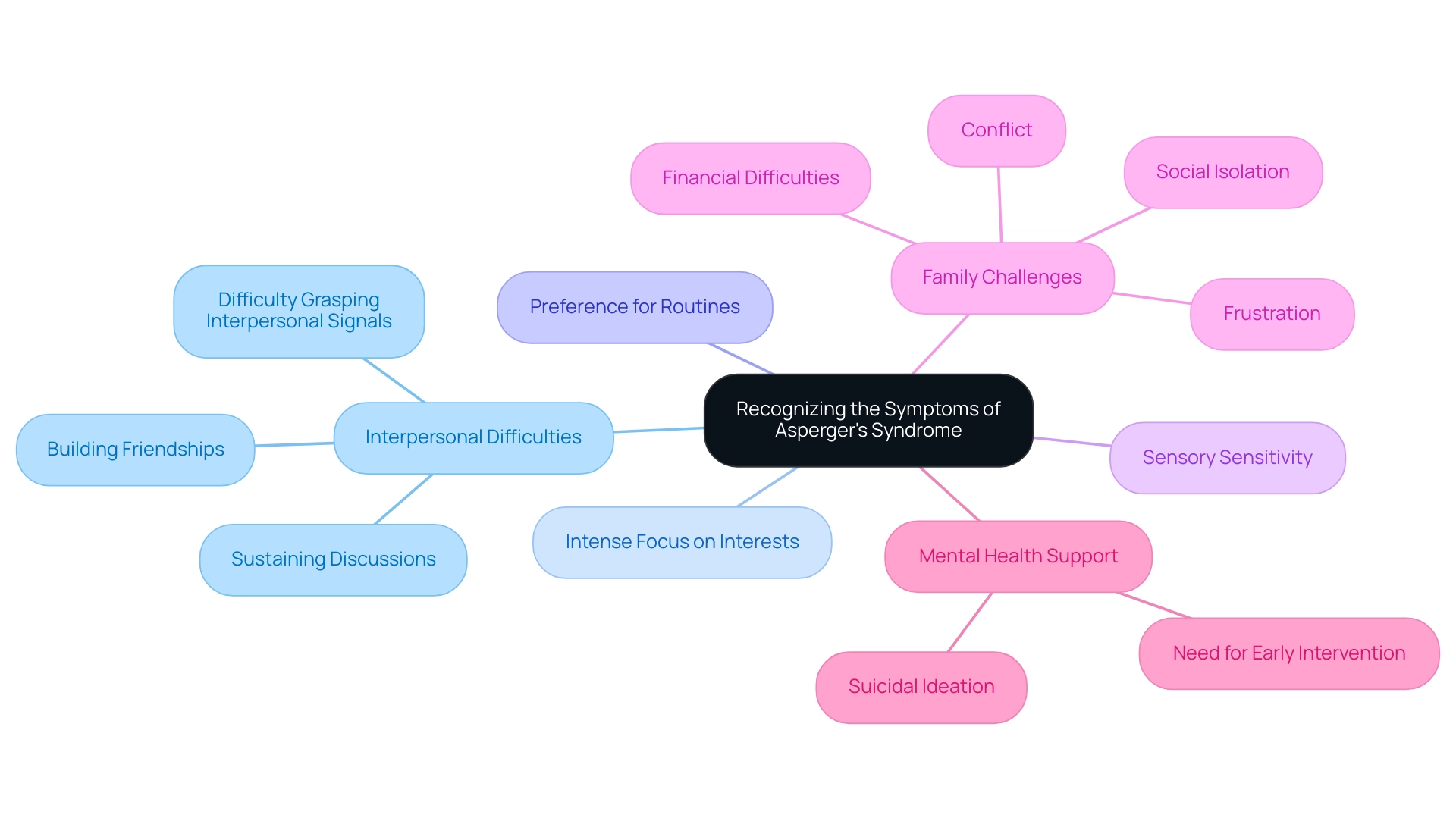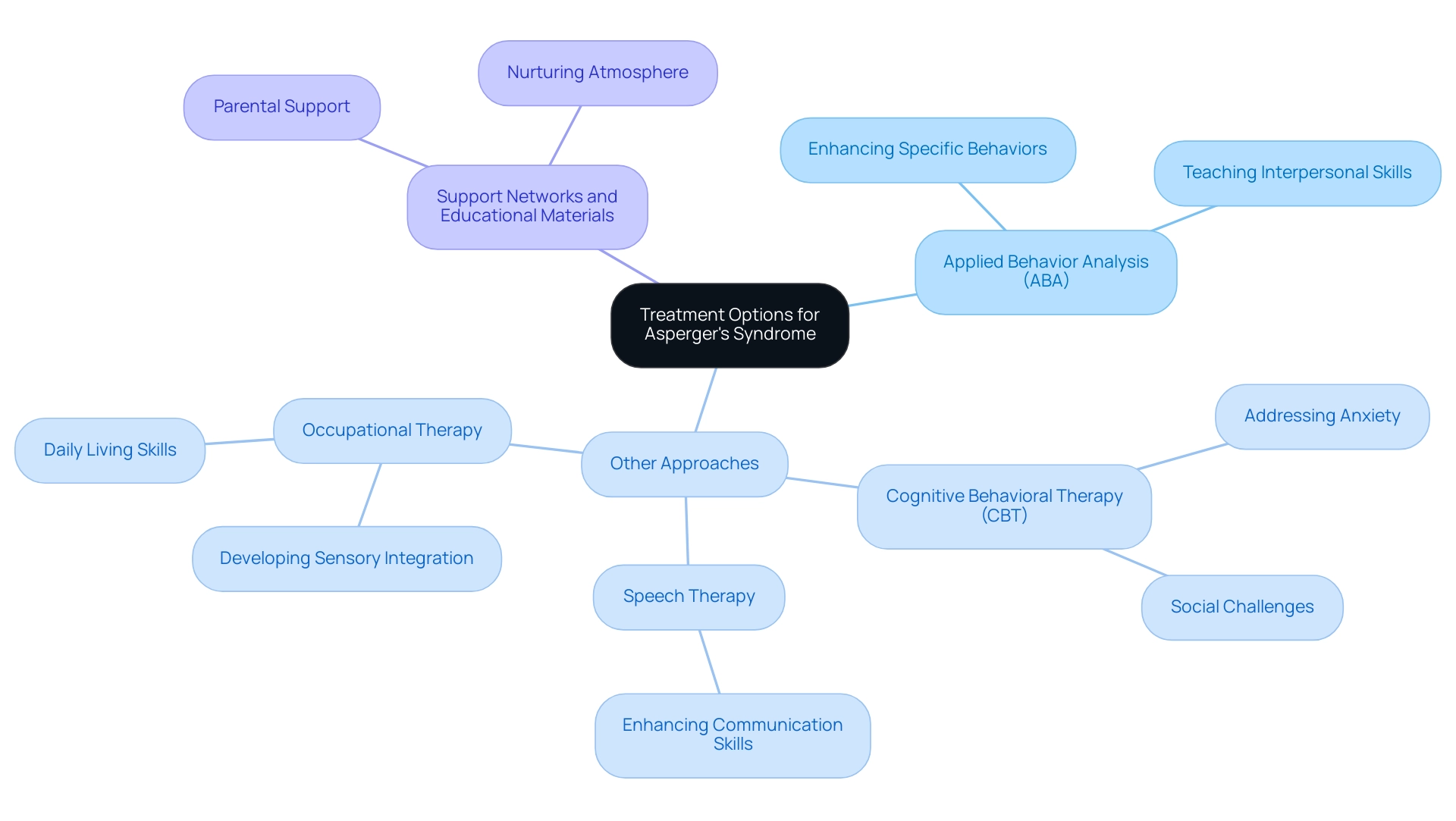Introduction
Navigating the complexities of Asperger's Syndrome can be a daunting journey for parents and caregivers. This neurodevelopmental disorder, part of the autism spectrum, presents unique challenges in social communication and interaction, often accompanied by remarkable intelligence and a distinct set of interests. With approximately 1 in 54 children diagnosed, understanding the nuances of Asperger's is essential for ensuring that individuals receive the support and interventions they need to thrive.
From recognizing early symptoms to exploring effective treatment options, this article aims to equip parents with the knowledge and resources necessary to advocate for their children, fostering an environment where they can flourish both socially and emotionally.
Defining Asperger's Syndrome: An Overview
Asperger's condition, which falls under the broader category of autism spectrum disorders, is primarily marked by difficulties in social communication and interaction. Individuals often possess average or superior intelligence and show no significant language delays. Early symptoms can be detected as young as 1 to 3 years old.
According to recent statistics, approximately 1 in 54 young individuals are diagnosed with an autism spectrum disorder, with Asperger's syndrome being a significant subset. A crucial factor to grasp is that compromised pragmatic language abilities in individuals with autism can result in considerable difficulties later in professional environments. Research indicates that while some children may outgrow their diagnosis, social and communication difficulties often persist into adulthood.
For example, a recent case study emphasized the experience of a young adult with autism who encountered difficulties in workplace communication but excelled in a supportive setting. It's also important to note that individuals with autism spectrum disorder generally have a normal life expectancy, though they may face a higher prevalence of comorbid psychiatric conditions.
Parental engagement is crucial in managing this condition, with various interventions available to improve parental self-efficacy and assistance. As one expert puts it,
'Asperger syndrome is a neurodevelopmental disorder within the family of autism spectrum disorder. It is characterized by impaired social communication and interaction, average or superior intelligence, and no significant language delay.'
Recent news from 2024 has highlighted the changing definitions and comprehension of autism spectrum disorder, emphasizing the necessity for ongoing research and assistance. Comprehending these traits is essential for parents and caregivers as they navigate the complexities of the syndrome and seek out the best resources and assistance for their children.

Recognizing the Symptoms of Asperger's Syndrome
Identifying the signs of Autism Spectrum Disorder is crucial for prompt intervention and assistance. People with Asperger's syndrome often encounter substantial obstacles in interpersonal interactions, such as:
- Difficulty grasping interpersonal signals
- Sustaining discussions
- Building friendships
Recent research suggests that around 70% of individuals with autism face interpersonal difficulties, emphasizing the commonality of these challenges. Additionally, there is often an intense focus on specific interests and a strong preference for routines, making changes in routine particularly distressing. Heightened sensitivity to sensory input, such as sounds and textures, is another common symptom.
As noted by autism experts, "Parents and families with kids diagnosed with AS face numerous challenges, including feelings of frustration, social isolation, conflicts within relationships, and financial difficulties."
A clinical cohort study on suicidal ideation among adults with autism spectrum disorder revealed a concerning prevalence of suicidal thoughts and behaviors, underscoring the critical need for mental health support. Early identification and intervention can significantly enhance the quality of life for individuals on the autism spectrum, helping families better understand and address their child's unique needs.

Exploring Treatment Options for Asperger's Syndrome
Treatment for Asperger's Syndrome often involves a combination of therapies tailored to the individual's unique needs.
- Applied Behavior Analysis (ABA) is one of the most effective interventions, concentrating on enhancing specific behaviors and teaching interpersonal skills through structured learning.
- Other approaches may include:
- Cognitive behavioral therapy (CBT) to address anxiety and social challenges
- Speech therapy to enhance communication skills
- Occupational therapy to develop sensory integration and daily living skills
Furthermore, assistance networks and educational materials can enable parents and caregivers to cultivate a nurturing atmosphere that promotes their offspring's development and well-being. Understanding these treatment options is crucial for parents as they navigate the complex landscape of support for their children with Asperger's Syndrome.

Conclusion
Navigating the journey of Asperger's Syndrome requires a deep understanding of its characteristics, symptoms, and available treatment options. Recognizing early signs is crucial, as timely intervention can significantly enhance the quality of life for individuals facing social communication challenges. With approximately 1 in 54 children diagnosed, the need for awareness and education is paramount.
Parents and caregivers play a vital role in advocating for their children, ensuring they receive the necessary support and resources tailored to their unique needs. From exploring effective therapies like Applied Behavior Analysis and cognitive behavioral therapy to fostering a supportive home environment, every step taken can lead to meaningful progress.
Ultimately, embracing the complexities of Asperger's Syndrome empowers families to navigate its challenges with confidence. By understanding the nuances of this condition, parents can advocate effectively, fostering a nurturing atmosphere that allows their children to thrive both socially and emotionally. The journey may be daunting, but with the right knowledge and support, brighter futures are within reach.




